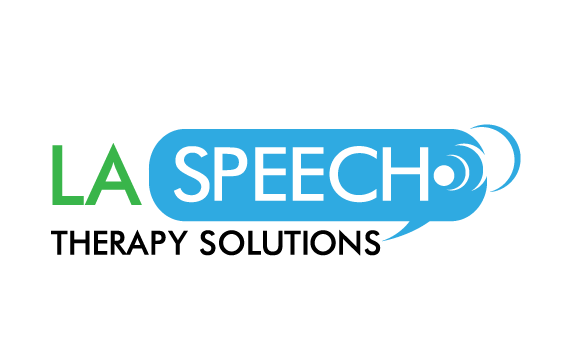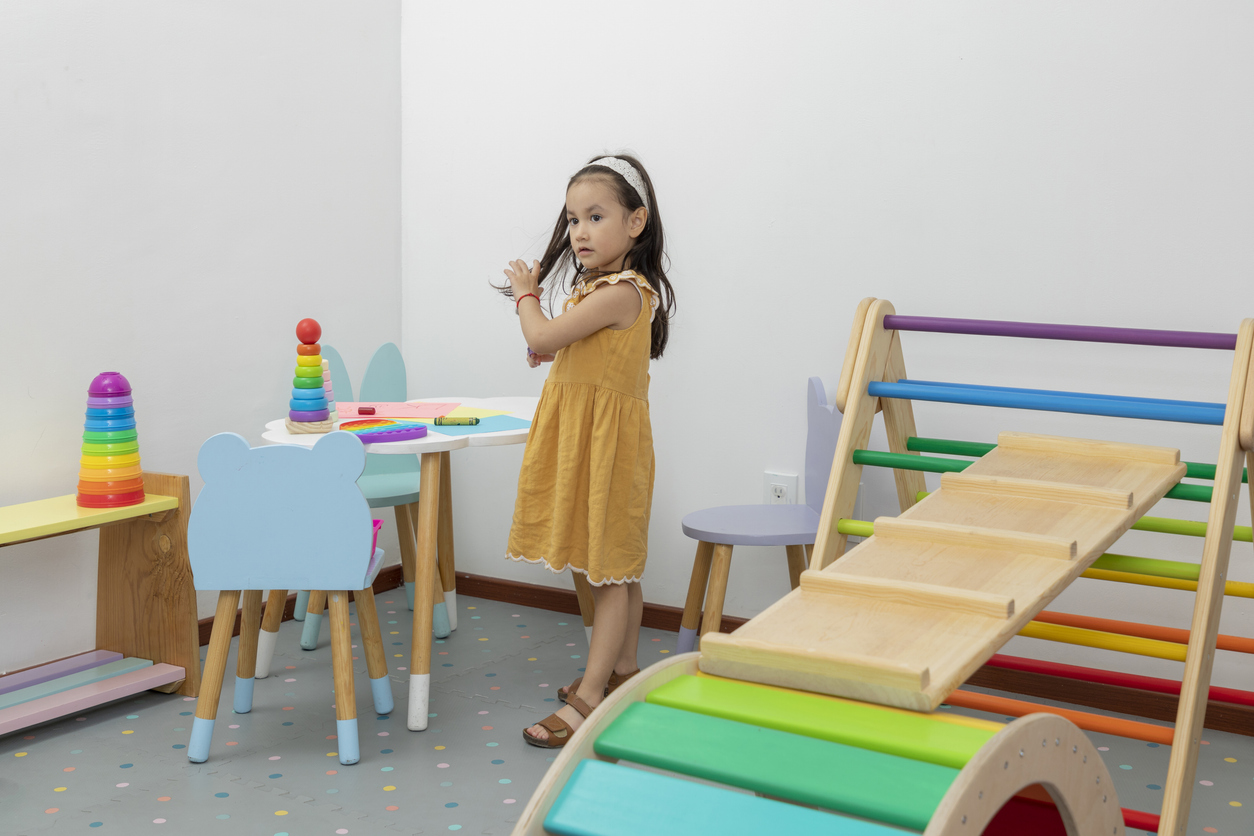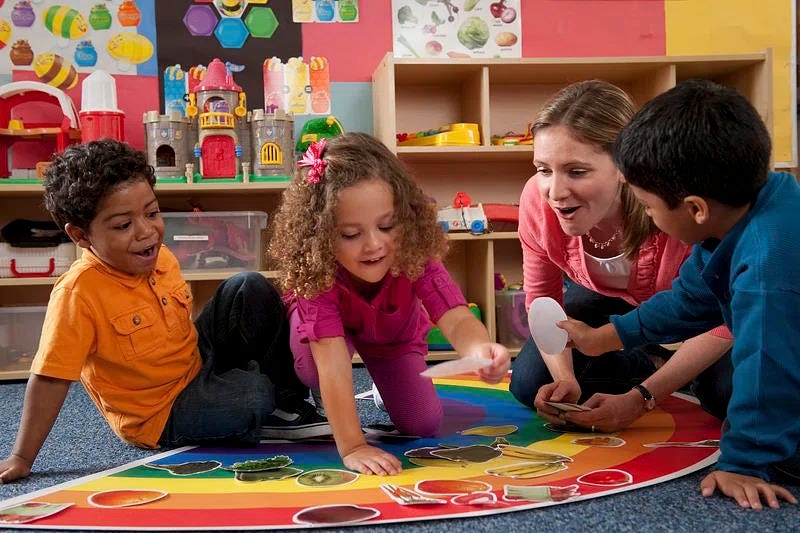
When you’re a parent, there is no question that certain milestones are especially important. Some of these milestones involve physical development—like learning how to walk and tie shoelaces. Others are in the realm of communication —like understanding language, expressing yourself verbally, and forming coherent sentences.
If your child appears to be struggling with any area related to speech or language skills, it may be time to consider visiting a local children’s speech care center. Speech therapy offers children a way to work on their ability to use language effectively. As they progress, they also begin to gain more confidence in social settings and improve their overall cognitive functioning. In this blog post, we’ll look at common signs that signal it may be time for parents to research speech-language services further.
Speech therapy vs. language therapy
Before diving into the different signs that your child may benefit from professional treatment, let’s quickly define both speech therapy and language therapy. Speech and language pathologists (SLPs) specialize in helping children who have difficulties related to their ability to communicate.
While these two terms—speech and language—may seem somewhat interchangeable, they have slightly different meanings. Speech refers more specifically to a child’s ability to produce sounds correctly or use gestures like sign language as an alternative form of interaction. Language is broader and covers how your child understands what they hear or read—as well as their ability to express themselves both orally and through writing.
Speech therapy: Signs that your child may benefit from a children’s speech care center
Does your child struggle to express themselves? Are they having difficulty with language and speech development? If so, the American Speech-Language-Hearing Association (ASHA) identifies a few potential warning signs that may serve as an indication of underlying speech issues.
- 1-2 years: Difficulty pronouncing words with b, h, p, m, and w
- 2-3 years: Difficulty pronouncing words with d, f, g, k, and n
- 2-3 years: Difficulty communicating in clear sentences, even with their family members and parents
- 3-4 years: Struggling to say longer words or phrases
- 4-5 years: Difficulty expressing thoughts and opinions
If any of these symptoms sound familiar, it may be time for you to look into children’s therapy solutions for speech disorders. A professional speech therapist can assess your child’s current skills and make appropriate recommendations based on their findings. For example, they may suggest targeted exercises designed to help improve both articulation and language processing abilities.
Language therapy: Signs that your child may benefit from a children’s language care center
In addition to speech therapy, language therapy is also an important component of helping children maximize their communication abilities. Here are a few signs that may signal the need for language-based interventions.
- Not smiling
- Not interacting with other children (and adults)
- 4-10 months: Not babbling, like most babies naturally behave
- 2-3 years: Struggles with understanding simple requests or questions
- 3-4 years: Difficulty following multi-step directions
- 4-5 years: Has trouble expressing thoughts in full sentences
- 7+ years: Struggles to carry on a conversation and respond appropriately
- 7+ years: Is not able to use language correctly when writing or typing out messages
If your child is having any issues related to communication, it’s always best to consult a reputable children’s speech care center near you. The earlier treatment begins, the better chance your child will have of overcoming their language-based challenges.
Promoting proper speech and language in the home
It’s important to remember that language and speech development are impacted by more than just outpatient therapy. There are certain at-home strategies parents can employ to encourage the right kinds of communication skills in their children. According to the experts, these include:
- Reading with your child daily
- Discussing new words and concepts as often as possible
- Asking questions and engaging your child in conversation
- Practicing pronunciation and articulation activities regularly
- Playing games designed to improve vocabulary
By taking steps like these, you are giving your children the tools they need to develop strong speaking abilities. Furthermore, you are also creating a space where they can feel comfortable sharing their thoughts and opinions.
Bottom Line: Reputable children’s therapy solutions can help
For parents wondering “Does my child need speech therapy?” – the answer is: Maybe. It really depends on what kind of issues they are experiencing and the level of personal discomfort these issues cause them. If you suspect that your son or daughter needs additional support to reach their language development, contact a reputable SLP in your local area for a proper assessment.
Communication is an essential part of being human, and children naturally learn to use language as they grow into their tweens, adolescence, and adulthood. However, if your child’s speech or language skills are falling behind where they should be, it may be time to start looking into speech and language therapy services.
By paying close attention to the warning signs and scheduling a consultation with a qualified SLP, you can work together to develop practical solutions that will help your child communicate effectively. With the right care and support from parents, children can find long-term success in communication regardless of their age.
Does my child need speech therapy?
It’s important to pay attention to your child’s physical, mental, emotional, and communication development. If anything about their speech or language skills seems a bit out of the ordinary, don’t be afraid to contact a reputable speech-language pathologist in your local area.
Don’t ignore any potential differences in communication milestones. Checking for interaction delays or communication disorders early can make all the difference! Take note of age-appropriate skills and book an assessment without hesitation if you’re still uncertain.
Once you identify that your child needs speech or language therapy services, the next step is finding a reliable SLP in your area. If you’re living in Los Angeles and asking yourself “where can I find a top-rated language or speech therapist near me?”, look no further than LA Speech Therapy Solutions.
By utilizing the right resources and strategies, these professional caregivers will help your child overcome any language or speech barriers they may have. You’ll be amazed at how much your child’s self-confidence and overall well-being will improve as they gain independence in expressing themselves. For more information on children’s therapy solutions for language or speech challenges, contact LA Speech Therapy Solutions today.





